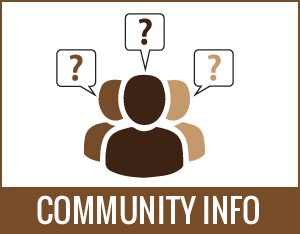
- By Timothy Ritchie, Ayushi Shah, Adela Dimov
- Posted Friday, February 19, 2016
WIC Who?
Most people have heard of WIC but do you know what WIC is, what WIC does, who WIC serves and why?
When a mother is pregnant or has just delivered, she and her baby are sensitive to nutritional deficiencies, need consistent nutritional support, and low-income families can have a hard time meeting these needs. A child continues to be sensitive to nutritional deficiencies up till they are about 5 years old. When these needs are not met, a variety of nutritional deficiencies can present themselves in a mother, baby, or young child in the form of otherwise preventable diseases and health conditions. Spina Bifida, a disfigurement of the spinal cord, is one such condition that results from a deficiency of folic acid in a mother’s diet during the first 4 weeks of pregnancy. Most mothers do not even know they are pregnant that early in the pregnancy. When young children experience nutritional deficiencies, they tend to not grow so well, have recurrent health problems, and don’t do as well in school which can make it difficult for them to find meaningful employment later in life. Consequentially, preventing these diseases and conditions can be a key step in breaking the cycle of poverty and reducing the costs of health care for low-income families.
Preventing these diseases and conditions can be challenging. A lot of research has been done on the American population to determine which nutrients mothers, infants and young children of low-income families tend to be deficient in. This research is done as part of the National Health and Nutrition Examination Survey (NHANES) which is a program of the National Center for Health Statistics (NCHS) under the Centers for Disease Control and Prevention (CDC).
Such information came to the attention of Congress in the late 1960s by a group of concerned physicians and so the pilot program, the Special Food Service Program for Children, was created and fmr. President Nixon signed it into action. By 1972, the program was proving successful and formally became the Special Supplemental Food Program for Women, Infants and Children, more popularly known as WIC. By 1975, WIC became a permanent program and is administered under the United States Department of Agriculture (USDA).
During those early years of WIC, Forsyth County was one of the first 6 counties in North Carolina to open a WIC Clinic. In 1990, one of the Nutritionists in Forsyth County's WIC program, Sheila Britt-Smith, realized that there were few resources or support centers to help breastfeeding mothers. At the time, WIC was largely thought of as a place to get free infant formula. So, she approached the WIC Director for Forsyth County's WIC program, Robert Jones, and received approval to apply for a grant. The grant was awarded and shortly afterwards Forsyth County's WIC program had 6 breastfeeding peer counselors to help mother's who wanted to breastfeed their babies. At the time, the peer counselors only received a stipend since there was no funding from WIC to pay them a salary. They were also trained by La Leche League since they were the only organization at the time to have a breastfeeding peer counselor program. This small pioneering step became the start of the first WIC Breastfeeding Peer Counselor Program in North Carolina.
After a couple years, the success of Forsyth County's WIC Breastfeeding Peer Counselor Program attracted the attention of the State Coordinator for WIC, Gladys Mason. She came to see Forsyth County's WIC Breastfeeding Peer Counselor Program first hand. Word got around through the rest of the state and it was realized that WIC Nutritionists also needed standardized basic breastfeeding knowledge in order to help breastfeeding mothers. To meet this demand for standardized training, the North Carolina Lactation Educator Training Program was started here in Forsyth County in coordination between Forsyth County's WIC Program and Forsyth Hospital in May 1996. In short time, the training program grew to include students who were professionals outside of WIC from pharmacy techs to medical doctors along with WIC Nutritionists from surrounding states. From its humble beginnings, Forsyth County's WIC Program has become a model to the rest of North Carolina and beyond for developing a Breastfeeding Peer Counselor Program and for providing breastfeeding services in a WIC Clinic.
Today, WIC serves low-income pregnant, postpartum and breastfeeding women, infants, and children up to 5 years old who are at nutritional risk by providing nutrition assessments, prescribing specific food packages to meet their nutritional needs, giving information on healthy eating, and providing breastfeeding promotion and support. When necessary, WIC provides referrals to health care and immunizations.
Here at Forsyth County WIC, we are proud to be able to serve our community in many of these vital ways and are proud to be models for other WIC programs.






